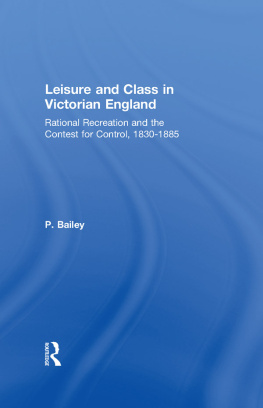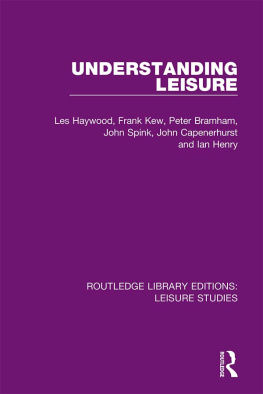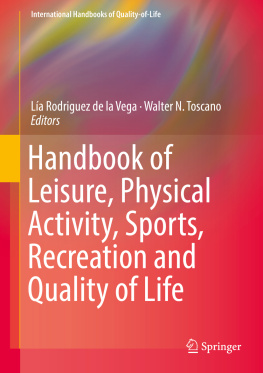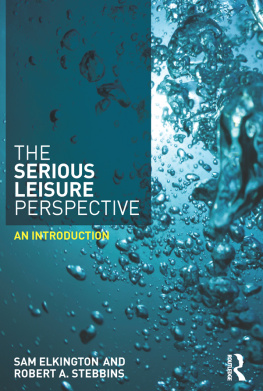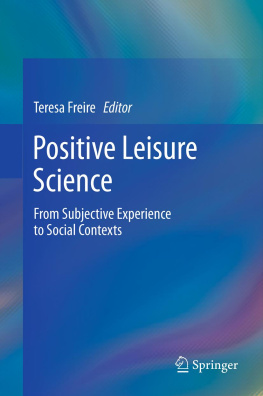SOCIAL IDENTITIES
General Editors: Shirley Ardener, Tamara Dragadze and
Jonathan Webber
Based on a prominent Oxford University seminar founded over two decades ago by the social anthropologist Edwin Ardener, this series focuses on the ethnic, historical, religious, and other elements of culture that give rise to a social sense of belonging, enabling individuals and groups to find meaning both in their own social identities and in what differentiates them from others. Each volume is based on one specific theme that brings together contemporary material from a variety of cultures.
Volume 1
Changing Sex and Bending Gender
Alison Shaw and Shirley Ardener
Volume 2
Medical Identities: Healing, Well-Being and Personhood
Kent Maynard
Volume 3
Professional Identities: Policy and Practice
in Business and Bureaucracy
Shirley Ardener and Fiona Moore
Volume 4
The Discipline of Leisure:
Embodying Cultures of Recreation
Simon Coleman and Tamara Kohn
Volume 5
Where Humans and Spirits Meet: The Politics of Rituals
and Identified Spirits in Zanzibar
Kjersti Larsen
THE DISCIPLINE
OF
LEISURE
EMBODYING CULTURES
OF RECREATION
Edited by
Simon Coleman and Tamara Kohn
First published in 2007 by
Berghahn Books
www.berghahnbooks.com
2007, 2010 Simon Coleman and Tamara Kohn
First paperback edition published in 2010
First ebook edition published in 2011
All rights reserved. Except for the quotation of short passages
for the purposes of criticism and review, no part of this book
may be reproduced in any form or by any means, electronic or
mechanical, including photocopying, recording, or any information
storage and retrieval system now known or to be invented,
without written permission of the publisher.
Publication of this work was assisted by a publication
grant from the University of Melbourne.
Library of Congress Cataloging-in-Publication Data
/ edited by Simon Coleman and Tamara Kohn.
p. cm. -- (Social identities)
Includes bibliographical references and index.
ISBN 978-1-84545-372-5 (hardback : alk. paper) -- ISBN 978-1-84545-778-5 (paperback) -- ISBN 978-0-85745-039-5 (ebook)
1. Leisure--Social aspects. 2. Recreation--Social aspects. I. Coleman, Simon, 1963- II. Kohn, Tamara.
GV14.45.D57 2007
306.4'812--dc22
2007043685
British Library Cataloguing in Publication Data
A catalogue record for this book is available from the British Library
ISBN: 978-1-84545-372-5 (hardback)
ISBN: 978-1-84545-778-5 (paperback)
ISBN: 978-0-85745-039-5 (ebook)
THE DISCIPLINE OF LEISURE: TAKING PLAY SERIOUSLY
Simon Coleman and Tamara Kohn
Playing for Real
A few years ago, one of us came upon on a small article in the Sunday magazine of a British newspaper. The title of the piece was Go See a Night of Leisure and it referred to a forthcoming debate at the Victoria and Albert Museum on what makes British people relax. The debate was to be presented by Tom Hodgkinson, editor of a journal splendidly called The Idler, and what really caught the attention was a distinction Hodgkinson wanted to make between two ways of having a good time: pleasure, he claimed, involved drugs and drink (and, we might assume, rock and roll); leisure, on the other hand, he saw as a more disciplined, sanctioned form of fun no drugs, and precious little drink.
The title of our book suggests that Hodgkinson may have been on to something. Pleasure and leisure, despite being virtual homonyms, can reveal worlds of difference in their experience and implementation. The former is a state of mind or body that has been achieved, however briefly; but the latter suggests more of a temporal state, a potentiality for action of whatever sort. In addition, they often relate to the world(s) of work in radically dissimilar ways: while we presumably hope that pleasure can occasionally be obtained from our labours, moments of leisure snatched from the working day are often likely to induce feelings of guilt. However, this volume is dedicated to exploring some of the blurred boundaries and ambiguities that emerge when we bring leisure and work together in our ethnographic purview. We accept that the two are often separated in ideologically charged ways, but we wish to juxtapose such ideologies with practices that tell a rather different story. In the process, we hope to uncover ethnographic areas that have been of increasing interest to anthropology in recent years, but which remain for reasons we shall discuss relatively unexamined compared to other aspects of social and cultural life, and certainly in relation to their public prominence. While much has been written about changing practices of work in post-industrial contexts and the impact such economic transformations have had on identity, constructions of locality and understandings of space and time, we believe that more ethnographic research is needed on contemporary leisure as a site of production as well as consumption, a form of remaking the self and of associated frameworks of sociality.
The close focus afforded by an ethnographic perspective is particularly well-suited to exploring the ambiguities inherent in the interplays between leisure and other activities. It is also an ideal methodological tool for examining the meanings and experiences of embodiment and a central concern of this book will be the body as a site of identity formation and disciplined recreation of the self. Indeed, much of our ethnographic focus is on sport and related activities rather than on, say, the arts. Most contributors use accounts of sporting or sports-related activity as ethnographic lenses through which to explore how selves can be remade in physical activities that simultaneously deflect and reflect the rigours of modernity, providing both apparent escape from, and pathways back to, anxieties about the effective deployment and deportment of the body. Furthermore, not only does sport complicate our ideas of escape and discipline, it also forces us to look at how different leisure activities may relate to each other in patterns of distinction or complementarity. For instance, as we shall see below, Kohn's aikido practitioners seek the pub as a refuge from the mat, whereas Rapport's bodybuilder finds that even away from the gym there is little escape from the rigours of the various disciplines to which he subordinates his body. Both cases explore the meanings of sporting activity for informants in the context of other aspects of their lives, and this strategy is surely one of the strengths of an ethnographic approach.
We see sport as a genre of leisure, therefore, and one that highlights issues of disciplining the body in powerful ways. Our approach necessarily overlaps with considerations of play, and in particular the extent to which it can or cannot be said to exclude instrumentality in its expression (see e.g. Lindquist 2001). We examine the objectification of the body in communities of practice that often transcend particular localities and temporalities, resulting in negotiations over correct etiquette and the meanings of tradition. Forms of bodily transformation are analysed not only as means of enacting (and contesting) identities, but also as complex mediators between contemporary ideologies of freedom, choice and (self-)control. In the rest of this introduction, we discuss the specific contributions of our authors before moving to a more general consideration of the benefits to be gained from an exploration of the disciplinary dimensions of leisure, and in particular sport.


